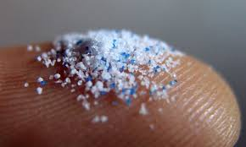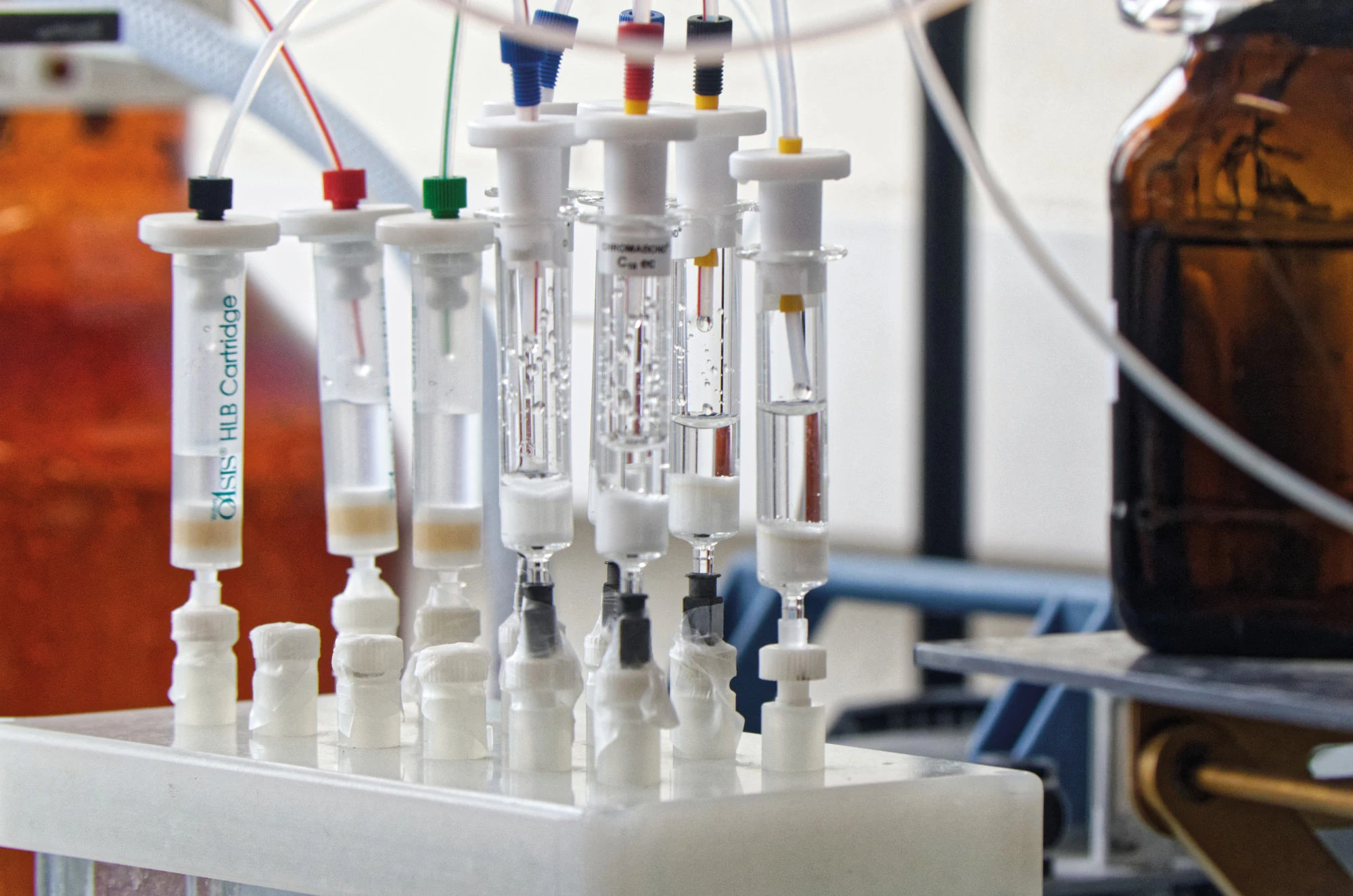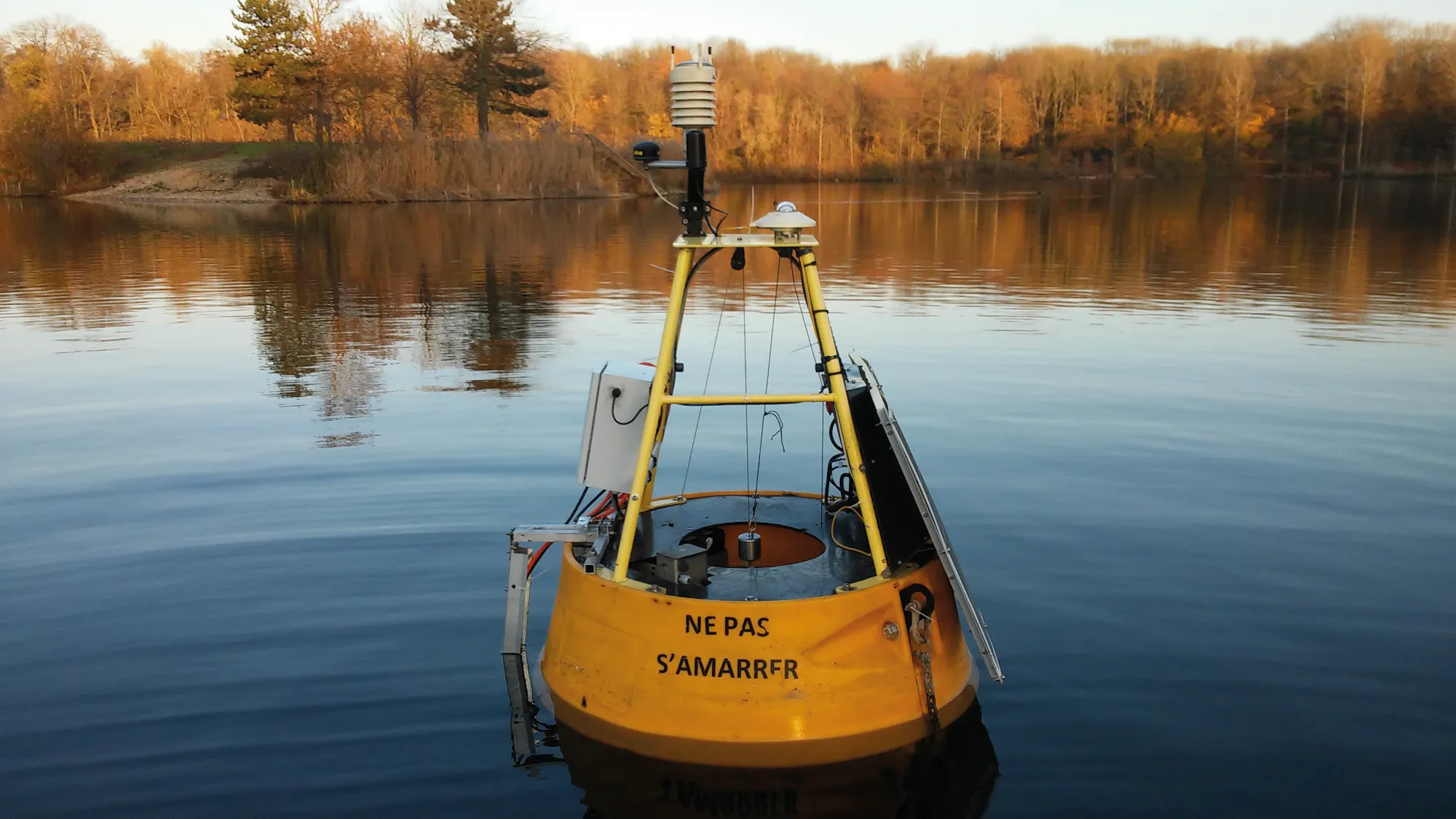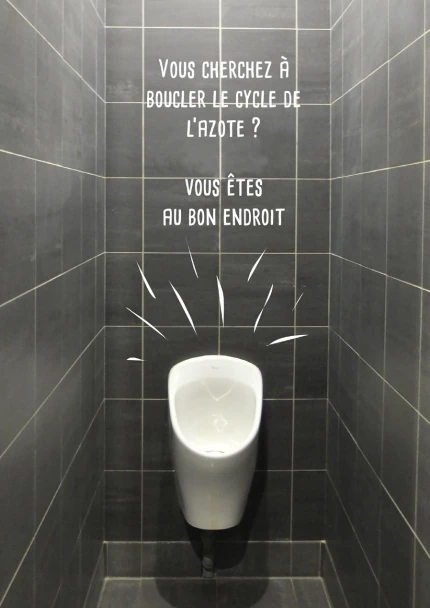Recent publications
935.
- titre
- Assessing water quality restoration measures in Lake Pampulha (Brazil) through remote sensing imagery
- auteur
- Alexandre Assunção, Talita Silva, Lino de Carvalho, Brigitte Vinçon-Leite
- article
- Environmental Science and Pollution Research, 2025, ⟨10.1007/s11356-025-35914-6⟩
- titre
- Do suspended particles matter for wastewater-based epidemiology?
- auteur
- Gauthier Bernier-Turpin, Régis Moilleron, Chloé Cenik, Fabrice Alliot, Sabrina Guérin-Rechdaoui, Thomas Thiebault
- article
- Water Research, In press, 280, pp.123543. ⟨10.1016/j.watres.2025.123543⟩
- titre
- Plastic debris dataset on the Seine riverbanks: up to 38 000 pre-production plastic pellets reported per square meter
- auteur
- Romain Tramoy, Laurent Colasse, Johnny Gasperi, Bruno Tassin
- article
- Data in Brief, 2025, pp.111735. ⟨10.1016/j.dib.2025.111735⟩
- titre
- La persistance des champs d’épandage d’eaux usées de l’agglomération parisienne au cours du second XXe siècle
- auteur
- Etienne Dufour
- article
- Métropolitiques, 2025, ⟨10.56698/metropolitiques.2174⟩
- titre
- Stock and vertical distribution of microplastics and tire and road wear particles into the soils of a high-traffic roadside biofiltration swale
- auteur
- Max Beaurepaire, Tiago de Oliveira, Johnny Gasperi, Romain Tramoy, Mohamed Saad, Bruno Tassin, Rachid Dris
- article
- Environmental Pollution, 2025, 373, pp.126092. ⟨10.1016/j.envpol.2025.126092⟩
Focus on micropollutants
published on , updated on
Researchers at Leesu conduct studies about micropollutants in the urban environment for more than 20 years.
A multidisciplinary expertise
Research projects related to micropollutants request numerous expertise in numerous fields of knowledge, with the support of staff and equipment of the analytical and field platform :

- Metrology:
- Passive samplers
- Sampling devices
- Analytical chemistry:
- Monitoring of famillies of micropollutants : PAH, BPA, phtalates, PBDE...
- Quality control: certified samples, blanck samples, control cards...
- Micropollutant determination in diisoved and particulate phases, separately

- Biology
- Nontuberculous mycobacteria (MNT)
- Viruses

- Ecotoxicology - Sanitary impacts
- Method development within Leesu: Zebra fish larvaes
- Partnership with Tronico VigiCell

- Urban hydrology and water treatment
- Fluxes determination
- Modeling
- Waterworks management and treatment processes
- Transformation processes
- Human and social sciences
- Consumer behaviour
- Whistle blowers
Our expertise on micropollutants is acknowledged in France, especially several awards are obtained regularly, and we participate in committees, technical groups and interlaboratory trials:
-
- 3 ASTEE PhD awards
- 2010 : Zgheib - Screening polluants (OPUR)
- 2013 : Bergé (OPUR, in collaboration with LCPP)
- 2017 : Dris - microplastics (Plastic debris)
- Comité Experts Priorisation (CEP) : INERIS, AFB
- Inter-laboratory analytical assays
- 3 ASTEE PhD awards
Collaborations

- Knowledge transfert with:
- SIAAP
- Veolia
- Suez
- Eau de Paris
- Local authorities
- ARCEAU Ile-de-France : Urban micropolluant review
- Strong partnerships with:
- SIAAP
- Eau de Paris
- OTHU : GRAIE (Lyon)
- Institut des Sciences analytiques
- LCPP
- IFSTTAR : ONEVU (Nantes)
- COFRAC accredited laboratories
Research projects
Numerous programs and projects of Leesu are dedicated to micropollutants in various contexts:
- The OPUR program studies sources, fate and management of micropollutants in urban waters. Two PhD theses have been dedicated to advanced treatment of micropollutants in wastewater treatment plants by adsorption onto activated carbon and ozonation.
- The two projects Roulépur and Cosmet’eau were selected as part of the national call Innovation et changements de pratiques – Lutte contre les micropolluants des eaux urbaines (AFB ex-ONEMA, Agences de l’Eau et Ministère de l’Ecologie, du Développement Durable et de l’Energie), to study the management of micropollutants from urban roads runoff, and the change of practices with cosmetic products, from whistleblowers to impacts on the environment.


- The WaterOmics project aims at developing characterization methods for organic micropollutants in urban waters by high resolution mass spectrometry and ecotoxicology.

- Several projects are being developed in the future 5th phase of OPUR program, to continue studies on advanced treatment of micropollutants in wastewater through oxidation processes (ozonation, UV photolysis, peracids...).

- Work on biocides performed in OPUR will be extended to the study of their sources and transfer to urban waters.
- Leesu wants to create a long-term observatory of micropollutants in urban waters (wastewater, sediments and sludges). First developments will be performed as part of OPUR5 during one full year of monitoring.









 Scientific production
Scientific production Technical resources and equipment
Technical resources and equipment Expertise and disciplines
Expertise and disciplines


